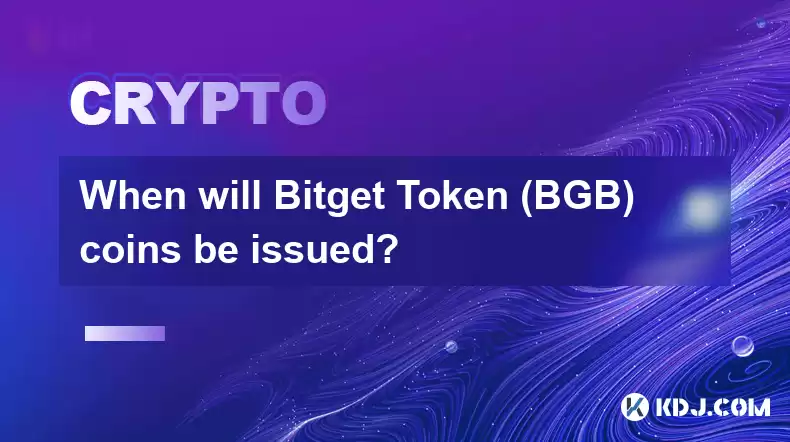-
 Bitcoin
Bitcoin $117700
-1.00% -
 Ethereum
Ethereum $4458
-3.91% -
 XRP
XRP $3.119
0.14% -
 Tether USDt
Tether USDt $1.001
-0.02% -
 BNB
BNB $836.6
-1.56% -
 Solana
Solana $189.5
-3.90% -
 USDC
USDC $0.9998
-0.02% -
 Dogecoin
Dogecoin $0.2335
1.29% -
 Cardano
Cardano $0.9642
1.51% -
 TRON
TRON $0.3539
-1.19% -
 Hyperliquid
Hyperliquid $47.41
-1.84% -
 Chainlink
Chainlink $21.92
-3.28% -
 Stellar
Stellar $0.4286
-0.23% -
 Sui
Sui $3.724
-3.29% -
 Bitcoin Cash
Bitcoin Cash $594.8
-0.78% -
 Ethena USDe
Ethena USDe $1.001
0.04% -
 Hedera
Hedera $0.2501
-2.06% -
 Avalanche
Avalanche $23.96
-4.87% -
 Litecoin
Litecoin $119.0
-2.32% -
 Toncoin
Toncoin $3.473
0.82% -
 UNUS SED LEO
UNUS SED LEO $9.596
0.17% -
 Shiba Inu
Shiba Inu $0.00001301
-0.39% -
 Uniswap
Uniswap $11.03
-0.25% -
 Polkadot
Polkadot $3.935
-2.62% -
 Dai
Dai $1.000
0.01% -
 Bitget Token
Bitget Token $4.564
-1.76% -
 Cronos
Cronos $0.1512
-4.11% -
 Ethena
Ethena $0.7306
-1.09% -
 Pepe
Pepe $0.00001087
-2.68% -
 Aave
Aave $300.2
-4.00%
When will Bitget Token (BGB) coins be issued?
BGB holders enjoy various benefits within the Bitget ecosystem, including discounted trading fees, increased rewards, and early access to exclusive platform features.
Dec 26, 2024 at 12:59 am

Key Points:
- Issuance Process and Timeline: The first round of BGB issuance has been completed, and subsequent rounds will follow a set schedule.
- Token Distribution Plan: BGB will be distributed to participants in Bitget's ecosystem, including traders, partners, and investors.
- Benefits of Holding BGB: Holders of BGB enjoy various benefits, such as discounted trading fees, increased rewards, and early access to platform features.
- Role of BGB in the Bitget Ecosystem: BGB serves as a utility token that fuels the Bitget ecosystem and enables the growth and development of the platform.
Issuance Process and Timeline
The issuance of BGB is a multi-stage process designed to ensure fair and equitable distribution. The first round of BGB issuance was conducted through a private token sale involving institutional investors and venture capital firms. Subsequent rounds of issuance will follow a predetermined schedule and may include public sales, airdrops, and mining.
Token Distribution Plan
The total supply of BGB is limited to 2,000,000,000 tokens. The tokens will be distributed according to the following allocation:
- Team: 20%
- Ecosystem Fund: 15%
- Marketing and Adoption: 15%
- Strategic Partnerships: 10%
- Private Sale: 10%
- Public Sale: 15%
- Airdrop and Mining: 15%
Benefits of Holding BGB
Holders of BGB enjoy a range of benefits that incentivize participation in the Bitget ecosystem:
- Discounted Trading Fees: BGB holders receive discounts on trading fees on the Bitget exchange, reducing the cost of executing trades.
- Increased Rewards: Holders of BGB earn higher rewards from staking, referral programs, and other platform activities.
- Early Access to Platform Features: BGB holders gain early access to exclusive platform features and updates, giving them an advantage over other users.
Role of BGB in the Bitget Ecosystem
BGB serves as a utility token that fuels the Bitget ecosystem and enables the platform's growth and development:
- Transaction Medium: BGB is used as a medium of exchange for various transactions within the Bitget ecosystem, including trading fees, subscription fees, and rewards.
- Liquidity Provision: BGB can be used to provide liquidity for new tokens listed on the Bitget Launchpad, helping to establish a robust and liquid market.
- Governance Participation: In the future, BGB holders may be able to participate in governance decisions related to the development of the Bitget ecosystem.
FAQs
Q: What is the purpose of BGB?
A: BGB is a utility token that fuels the Bitget ecosystem, offering benefits to holders and supporting the platform's growth.
Q: When will subsequent rounds of BGB issuance occur?
A: The schedule for subsequent rounds of BGB issuance has not yet been announced.
Q: How can I acquire BGB?
A: You can acquire BGB through public sales, airdrops, or mining events.
Q: What is the total supply of BGB?
A: The total supply of BGB is limited to 2,000,000,000 tokens.
Q: What is the value of BGB?
A: The value of BGB is determined by market forces and can fluctuate over time.
Disclaimer:info@kdj.com
The information provided is not trading advice. kdj.com does not assume any responsibility for any investments made based on the information provided in this article. Cryptocurrencies are highly volatile and it is highly recommended that you invest with caution after thorough research!
If you believe that the content used on this website infringes your copyright, please contact us immediately (info@kdj.com) and we will delete it promptly.
- Kazakhstan's Crypto Leap: Bitcoin ETF and Central Asia's Digital Finance Future
- 2025-08-13 12:45:19
- BlockDAG Presale Blazes Past $371M: Fundraising Frenzy Fuels Crypto Sensation
- 2025-08-13 13:05:21
- Meme Coins: Chasing the 2025 Surge – Which Will Moonshot?
- 2025-08-13 10:25:23
- Bitcoin's Wild Ride: Rally, Pullback, and What's Next
- 2025-08-13 10:25:23
- Bitcoin, Bitmax, and Institutional Demand: A New Era of Crypto Investment
- 2025-08-13 10:45:12
- Solana, ROAM, and Airdrops: What's the Buzz in 2025?
- 2025-08-13 11:35:13
Related knowledge

How to purchase Aragon (ANT)?
Aug 09,2025 at 11:56pm
Understanding Aragon (ANT) and Its PurposeAragon (ANT) is a decentralized governance token that powers the Aragon Network, a platform built on the Eth...

Where to trade Band Protocol (BAND)?
Aug 10,2025 at 11:36pm
Understanding the Role of Private Keys in Cryptocurrency WalletsIn the world of cryptocurrency, a private key is one of the most critical components o...

What is the most secure way to buy Ocean Protocol (OCEAN)?
Aug 10,2025 at 01:01pm
Understanding Ocean Protocol (OCEAN) and Its EcosystemOcean Protocol (OCEAN) is a decentralized data exchange platform built on blockchain technology,...

How to invest in Kyber Network Crystal v2 (KNC)?
Aug 12,2025 at 05:21pm
Understanding Kyber Network Crystal v2 (KNC)Kyber Network is a decentralized liquidity hub built on the Ethereum blockchain that enables instant token...

Where can I buy UMA (UMA)?
Aug 07,2025 at 06:42pm
Understanding UMA and Its Role in Decentralized FinanceUMA (Universal Market Access) is an Ethereum-based decentralized finance (DeFi) protocol design...

How to sell my Ren (REN) tokens?
Aug 13,2025 at 11:35am
Understanding REN Tokens and Their Role in Decentralized FinanceREN is an ERC-20 token that powers the Ren protocol, a decentralized interoperability ...

How to purchase Aragon (ANT)?
Aug 09,2025 at 11:56pm
Understanding Aragon (ANT) and Its PurposeAragon (ANT) is a decentralized governance token that powers the Aragon Network, a platform built on the Eth...

Where to trade Band Protocol (BAND)?
Aug 10,2025 at 11:36pm
Understanding the Role of Private Keys in Cryptocurrency WalletsIn the world of cryptocurrency, a private key is one of the most critical components o...

What is the most secure way to buy Ocean Protocol (OCEAN)?
Aug 10,2025 at 01:01pm
Understanding Ocean Protocol (OCEAN) and Its EcosystemOcean Protocol (OCEAN) is a decentralized data exchange platform built on blockchain technology,...

How to invest in Kyber Network Crystal v2 (KNC)?
Aug 12,2025 at 05:21pm
Understanding Kyber Network Crystal v2 (KNC)Kyber Network is a decentralized liquidity hub built on the Ethereum blockchain that enables instant token...

Where can I buy UMA (UMA)?
Aug 07,2025 at 06:42pm
Understanding UMA and Its Role in Decentralized FinanceUMA (Universal Market Access) is an Ethereum-based decentralized finance (DeFi) protocol design...

How to sell my Ren (REN) tokens?
Aug 13,2025 at 11:35am
Understanding REN Tokens and Their Role in Decentralized FinanceREN is an ERC-20 token that powers the Ren protocol, a decentralized interoperability ...
See all articles

























































































